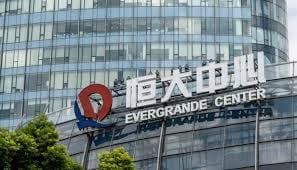Evergrande’s Delisting: The Cautionary $300bn Warning
The former Chinese real estate giant Evergrande has been removed from the Hong Kong stock exchange. This spectacular fall caps a collapse that began with a 2021 default. It now includes a court-ordered wind-up and a lifetime market ban for founder Hui Ka Yan after regulators said the group overstated about $78bn of revenue.
At its peak, the developer carried more than $300bn in liabilities, ran roughly 1,300 projects in 280 cities, sold units at steep discounts to keep cash flowing after Beijing’s 2020 tightening, and still couldn’t meet interest payments.
Its equity has vaporized, down more than 99%, and the company sought Chapter 15 protection in New York in August 2023 to shield U.S. assets while negotiating multi-billion-dollar claims.
The company was a victim of China’s changing priorities. As recently as just before the pandemic, real estate was responsible for roughly one-third of China’s GDP.
However, investment and fundraising in property cratered, employment in construction and allied sectors fell, household wealth tied to apartments wobbled, and consumers pulled back.
Beijing deployed hundreds of billions of yuan in low-interest funding to revive consumer spending on housing, but stopped short of bailing out developers like Evergrande.
What Does This Mean for Me?
Since then, China has pivoted to higher-productivity fields such as renewables, EVs, robotics, and AI, where returns are exportable and less tied to land finance. Evergrande’s delisting marks the end of a once vibrant stock and signals that China is swapping a debt-heavy growth driver for industries that can compound without the kinds of financial leverage and gearing needed in the property sector.

More News
.webp)
Japan’s Rate Shift Is Rippling Through Global Bond Markets

China’s Growth Engine Stalls as Consumers and Investors Pull Back

Egypt’s Recovery Gains Traction as Household Pressure Lingers

OECD Warns AI and Tariffs Will Test the Global Economy

Zero Tariffs, Higher Drug Bills as US and UK Reset Pharma Trade

Catastrophe Bonds Go Global as Climate Risk Meets Yield Hunting
.webp)
Canada Shields Steel and Lumber Industries From Tariffs
